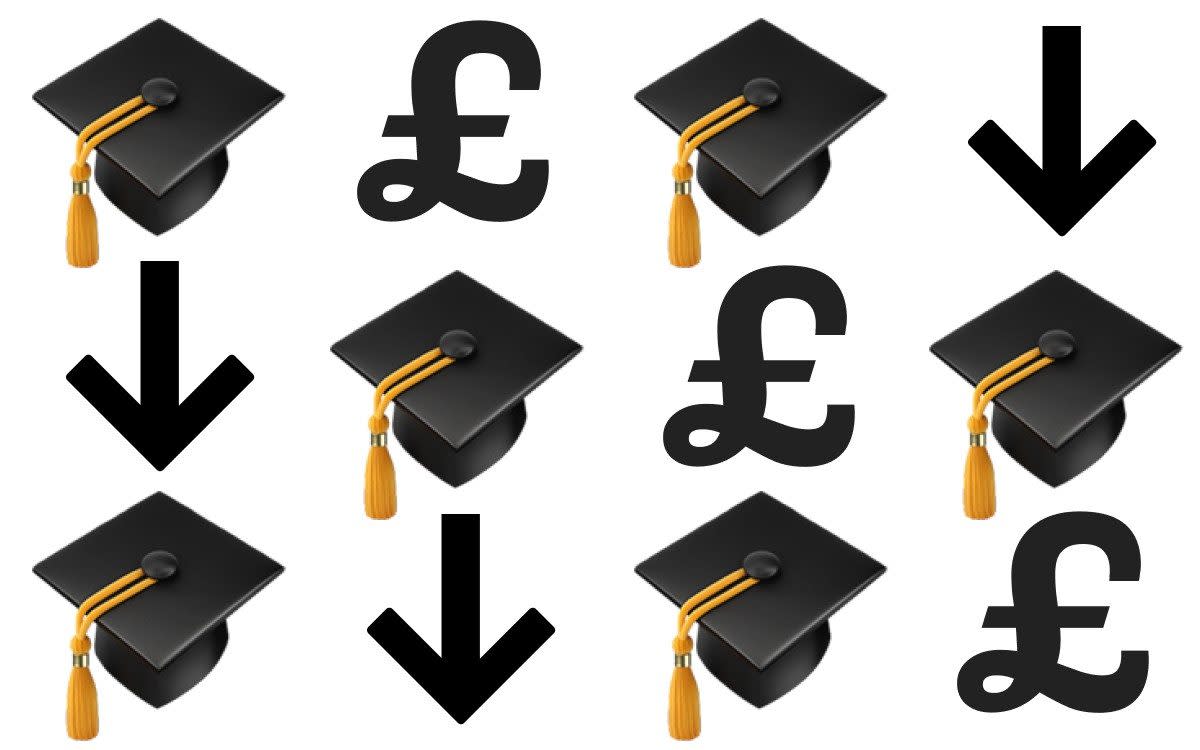The ultimate ‘Mickey Mouse degree’, with the lowest graduate salary

A degree that offers a module in Disney Studies has been named the worst in the UK for salary prospects, leaving graduates earning below minimum wage after five years and earning so little they face their student debt ballooning to almost £95,000.
Graduates of media, journalism and communications degrees from the University of Hull earned on average £16,100 after five years, according to data from the Department for Education (DfE). This is less than for any other course in the UK and below the roughly £19,000 National Minimum Wage full-time annual equivalent.
Those graduating face the cost of their degree ballooning to almost £95,000 before the debt is cancelled because they are unable to earn enough to pay it off, according to Telegraph analysis.
The earnings figure relates to the 2014/15 cohort’s PAYE salaries in the 2020/21 tax year, and a spokesperson for the Yorkshire institution said it was not a reflection of courses they offer today.
The University of Hull’s website states that the current BA (Hons) Media Studies “blends hands-on skill with thought-provoking theory” and promises its students they will leave a “work-ready professional” upon graduation.
The course includes a compulsory first year module digging into “the ways in which television has been conceptualised, theorised and analysed by television and media scholars”.
The third year also provides an optional “in-depth exploration of the history and impact of Disney’s global entertainment empire”.
According to the Discover Uni data the university’s own information page links to, 0pc of graduates were “using what they learnt during their studies in their current work”.
Across all UK universities, media, journalism and communications graduates earned £24,800 on average after five years. Only three subjects came in lower than this: Celtic studies (£24,700), creative arts and design (£22,400) and performing arts (£22,000). But this varies widely by university: those who studied media, journalism and communications at Loughborough University came out top for salary at £38,300 a year.
Whether higher education is worth the cost is increasingly tricky to answer – tuition fees remain at historic highs and living expenses have soared. Whether particular degrees are worth it is both a simpler and more pertinent question.
Hull charges the full £9,250 a year for this three-year course, coming to £27,750 in total tuition. On top of rent, food and transport, students are also warned they will have to fork out for books, study trips and, come graduation day, gown rental and photography.
Last year the average student loan balance for graduates in England hit £45,000. The new “Plan 5” loans mean graduates are now repaying more, and for longer: the salary threshold above which they start paying off their debt was lowered to £25,000, and the term after which they are wiped out was extended to 40 years.
Under this system, Hull’s media graduates face paying off the cost of their degree, without ever reducing the outstanding balance, until they are in their 60s. By the time they are finally erased, the debt may be worth £94,600 – more than double what it was initially.
This is assuming earnings grow at 2pc annually and that the interest charged by the Student Loans Company on Plan 5 loans remains tied to the RPI, which the Office for Budget Responsibility’s (OBR) long-term economic determinants estimate at 2pc on average until the 2060s.
More generously, applying the OBR’s 40-year earnings growth forecast of 3.8pc instead brings the final outstanding bill down to £61,400. An extra 15 years of employment and pay rises would be required to pay the loan off rather than have it cancelled.
Despite these total figures looming large, monthly repayments depend solely on earnings. Those making below £25,000 repay nothing at all; after that you sacrifice 9pc of your annual income. For those earning marginally above the threshold, this is often less than the interest added, so the outstanding balance actually increases.
For example, in the first year after university, someone with £45,000 of student debt would need to earn £35,000 in order for their repayment to counteract the interest. Whenever this isn’t the case, the outstanding balance will continue to balloon until eventually being wiped out.
According to a recent House of Commons research briefing, the Government expects 61pc of undergraduates to repay their loans in full under the Plan 5 reforms, up from just 27pc under the previous system.
Tom Allingham, of student finance platform Save the Student, said: “The value of a degree is a tricky thing to quantify. In our latest National Student Money Survey, 57pc of current students felt their university experience represented good value for money, but there are many things to consider.
“If a student is keen to earn a high salary then yes, graduate earnings are a factor. But many career paths that require a degree – such as nursing – don’t lead to massive pay, so it’s important to consider other ways in which a degree can offer value.”
The spokesman for the University of Hull added: “We continually review all our programmes to ensure they address the current market needs locally, nationally and globally and to ensure they meet the expectations of our students.
“Over the past few years, we have transformed our media related programmes, introducing courses such as media production, graphic design and game design. These courses all align with sector and industry needs, making our graduates attractive to employers across this growing and diverse sector.”
According to the Centre for World University Rankings (CWUR), the University of Hull is 37th best in the UK and ranked 510th internationally. The Complete University Guide places it 58th nationally out of 95 for communication and media studies.
Recommended
The best and worst degrees for earning a high salary

